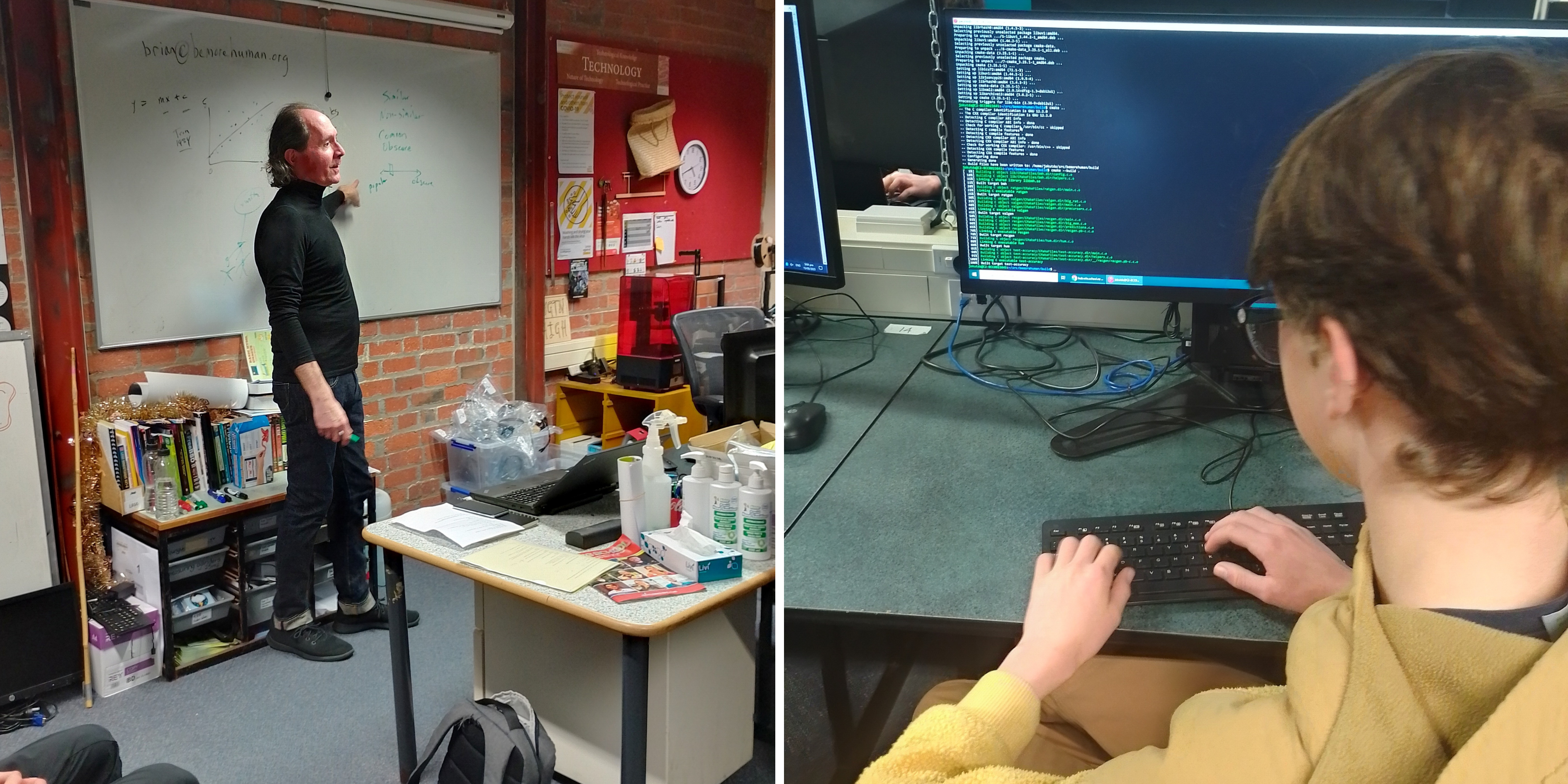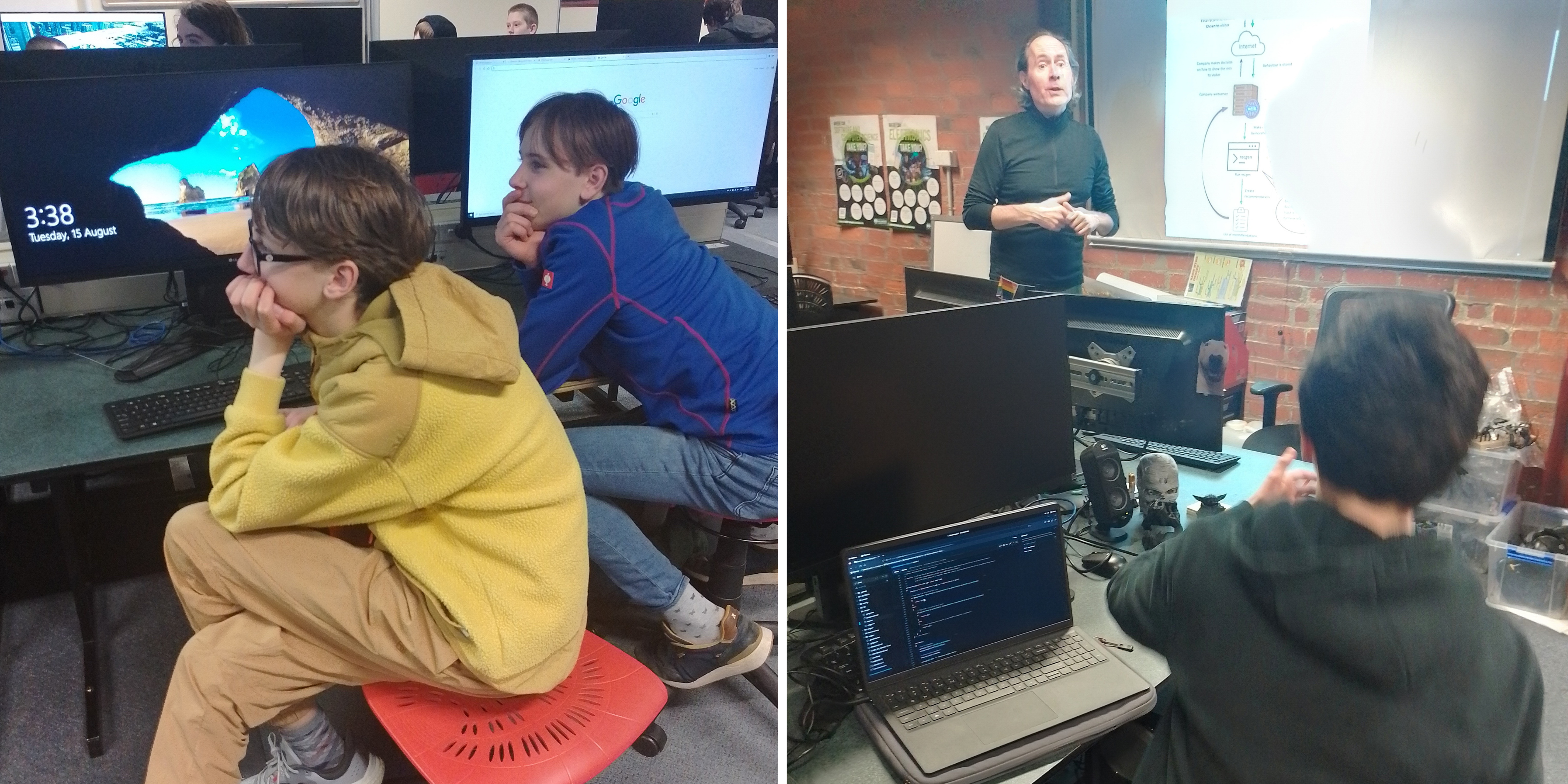Diving into AI with Be More Human

Brian Calhoun has over thirty years of experience in Tech. His organisation Be More Human specialises in Artificial Intelligence (AI), and has recently finished delivering an extra-curricular programme to a group of students at Wellington High School.
You’re trying to raise awareness of what AI does and break down some of the connotations, whilst also showing people how to create it. How’s that going?
Any time you have a new technology, whether it’s the printing press, the radio, television, or the internet, there’s going to be apprehension and resistance. We’re about awareness. How do you get the awareness out there? How do you raise awareness? It’s a constant effort. As AI spreads throughout society, people start to understand more about it. It's going to become more commonplace. It’s already embedded in things like TikTok filters — little bunny ears and ones that make you look older — these contain a fair amount of AI but people don't really think about it that way. AI is everywhere already.
What's the purpose of Be More Human?
Our charity is all about the creation of AI and showing people how it works. We’re following the example of Digital Natives Academy in Rotorua, who are about creating content, esports, digital technology, and digital art for students. They’re pioneers who want to create creators, and that’s what we talk to our students about. We show them how they can create with open source technology, while also talking to them about what it's like to work in these advanced technology areas in business.

CAPTION Discussing how recommender systems work and building and installing AI on the students' own computers!
How did the idea to independently teach and educate about AI come about?
I have a long-standing interest in AI. I studied it at university and have had various jobs in the industry since, creating software. I wanted to think bigger about how this technology could be used and that’s why I started a charity about education and getting AI out there, to show people how to use it.
What are students' attitudes to AI when they first turn up to a class?
It's mixed. The students don't get course credits for being there, so they're doing it on their own time. They have a natural predilection in this stuff and, by and large, they are open to these ideas and they want to learn. They want to understand more but some of their perceptions of AI have been coloured by either parents or some media coverage they have seen.
What feedback have you had?
At the end of the course I asked students some general questions, like "What kind of AI would you like to create?" One said, "I would wish to work towards contributing to Artificial General Intelligence and progressing that aspect," and another said they’d like to create a math theorem prover AI. All students reported feeling more confident on the topics of AI principles, bias, and Recommender Systems by the end of the course. The majority of students, who followed up on their own regarding the topics presented, expressed an interest in further sessions and are interested in creating AI.
What do they hope to gain from your programme long term, and what support do they need?
It hurts to see young graduates immediately start thinking about buggering off to Australia! We have the chance to help with a number of different pieces of this puzzle, and give them another reason to want to stay in New Zealand, if they can see a career opportunity with AI. The gaming industry is a good example of an area of Tech where the Government has started to open up funding opportunities, grants, different tax breaks, and things for gaming studios. The film industry was one of the pioneers of modern technology here in New Zealand, then the gaming industry came along, and we want AI to be next.

CAPTION Most of the class is in discussion format. Here we see a question and answer session about production environments.
What does the InterneNZ funding mean for your work?
The InternetNZ funding is absolutely crucial for multiple reasons, one of them being the connectivity with the other grantees. I’ve got a list of people I’m going to talk to, including one who is doing work with open source, to understand the successes and the challenges. We might be able to learn from each other and share ideas and there’s no way I would have come across him if it wasn't for InternetNZ.
Brian Calhoun is the founder of the not for profit organisation Be More Human.